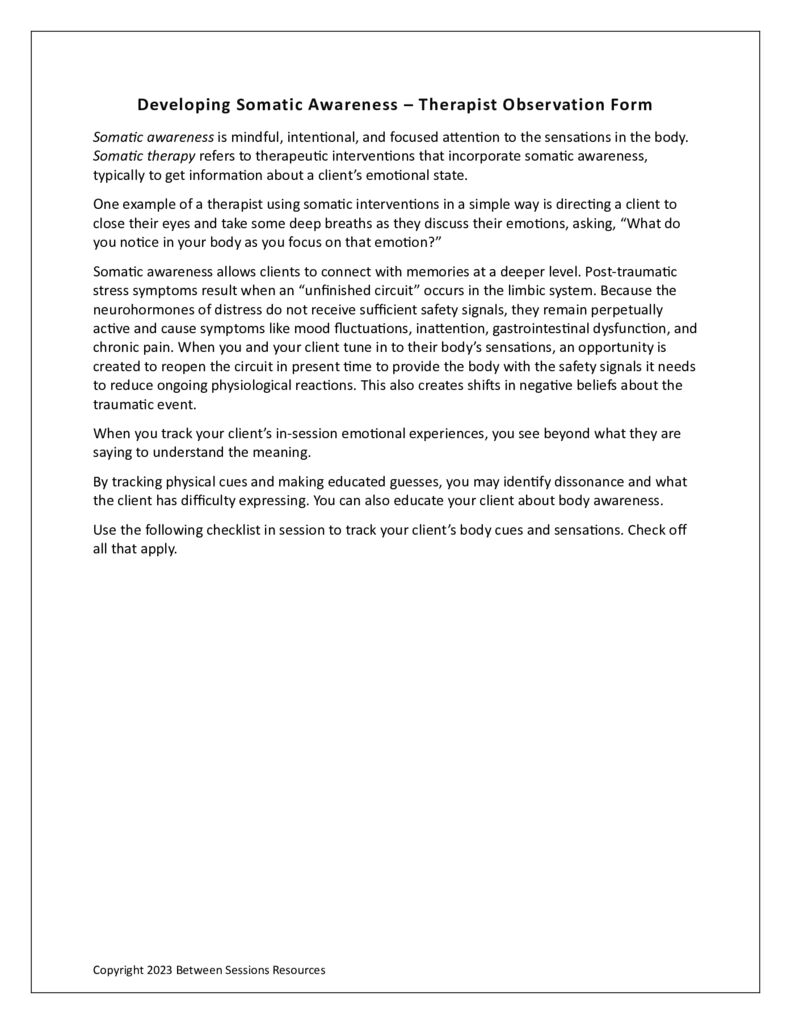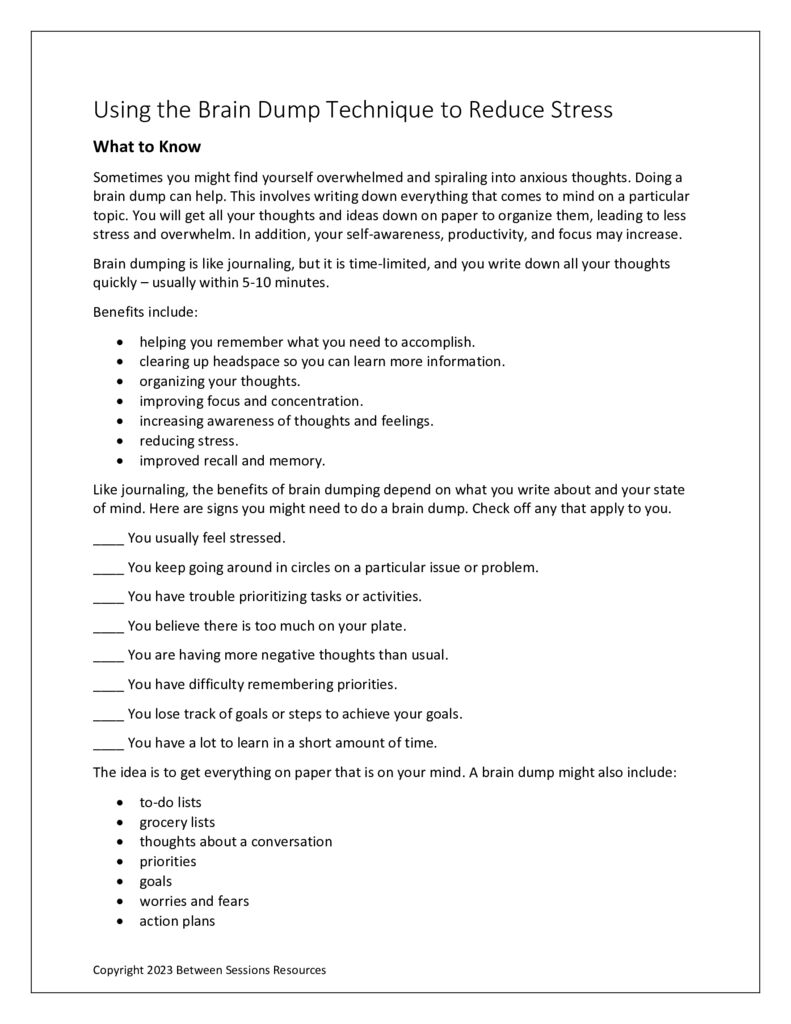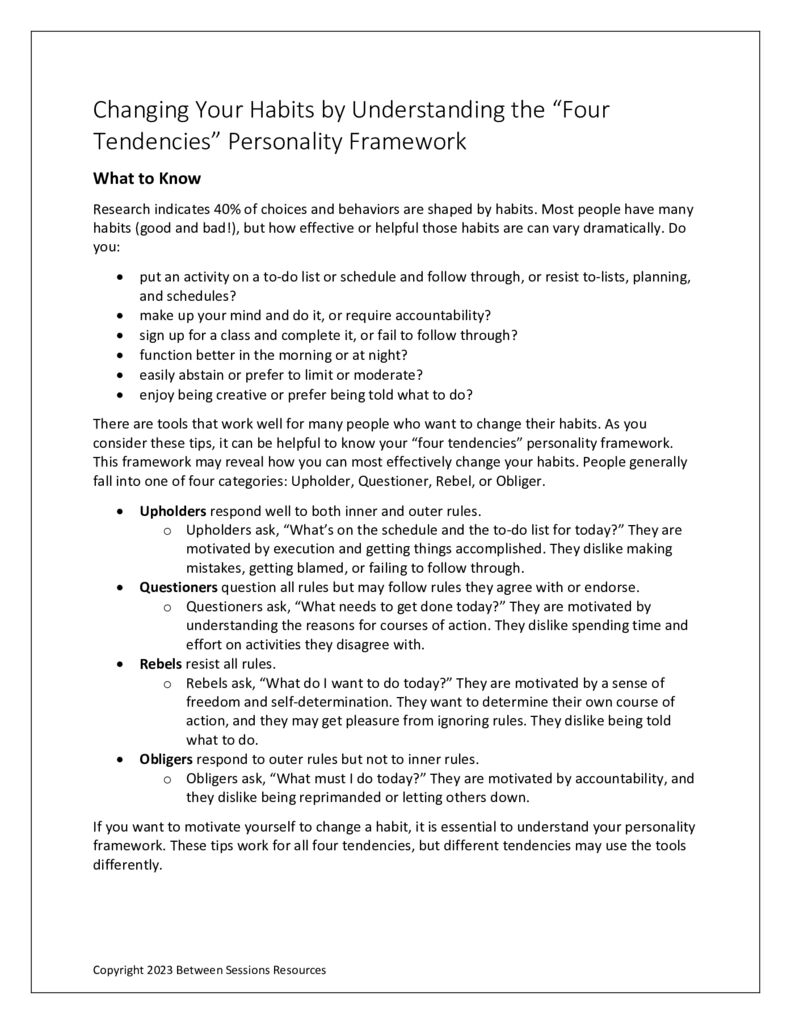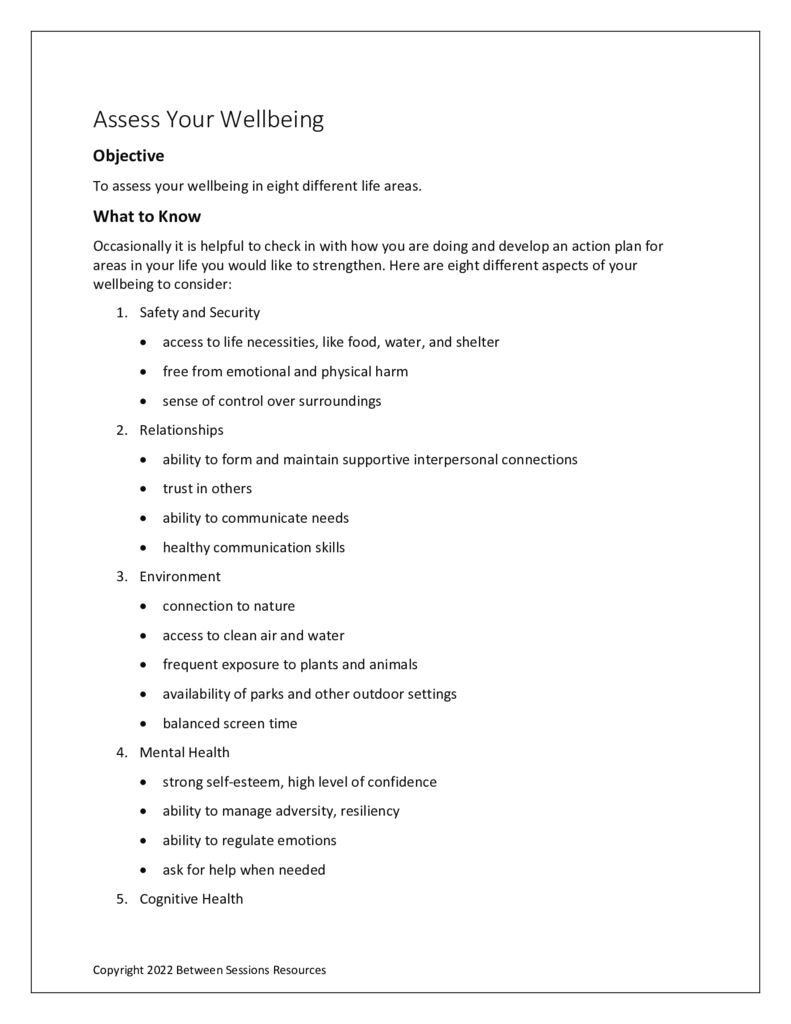Somatic awareness is mindful, intentional, and focused attention to the sensations in the body. This checklist allows therapists to check a client’s body cues and sensations while they are in session. Areas include posture, areas of tension, eyes, facial, expression, gestures, movement, voice, speech, breath, and general presence. There are also areas to help observe for hyper-arousal and hypo-arousal as revealed by body cues. (0423, assessment, somatic, body awareness, non-verbal)
This worksheet is designed for caretakers of older adults who are struggling with a loss. It details warning signs that might signal that extra attention is needed and recommends specific steps that might help with different kinds of problems. (0223, elderly, loss, gerontology)
This worksheet describes a stress reduction technique that involves writing down everything that comes to mind on a particular topic. A brain dump could include thoughts about a conversation, goals, worries, fears, or a list of things that are bothering you. The worksheet describes four categories of brain dumps. It encourages people to use a notebook or journal to practice this technique each day for two weeks and record their feelings. (0122, stress reduction, journaling)
This worksheet asks people to think about their personality in one of four categories: upholder, questioner, rebel, or obliger. It then gives 7 techniques to help people can change a habit. Charts are included to help people track and change their habits (0123, habits, problem-solving, impulse control)
This worksheet is designed to help people develop a daily habit of relaxation to reduce stress and improve their physical and mental health. The worksheet suggests various relaxation activities and includes a chart to help people keep track of them. (1222. relaxation response, stress reduction)
This tracking tool helps your clients identify and track the triggers that precede their problem behaviors. The chart lets clients track up to 8 triggers for an entire month. (1122, anxiety, data recording, assessment, depression, addiction, emotional regulation)
This worksheet helps people identify if they have Emetophobia, a fear of vomiting, and encourages them to explore how this affects their lives. (0922, phobia, vomiting)
This worksheet suggests wellness ideas for people working at home and on a computer all day. A chart is provided to help people keep track of which coping activities help. (0722, workplace, burnout, wellness)
The worksheet suggests that people do a wellness checkup in 8 areas of their life: safety and security, relationships, environment, mental health, cognitive health, physical health, community, and purpose. It provides a form for people to rate themselves in each area from “in crisis” to “doing great.”
This worksheet is designed to people who find themselves suddenly facing the challenges of a serious illness or disability. The worksheet gives people a dozen coping strategies as well as questions for people to think about and a chart to keep track of what strategies helped most. (0822, illness, disability, coping, health concerns)









